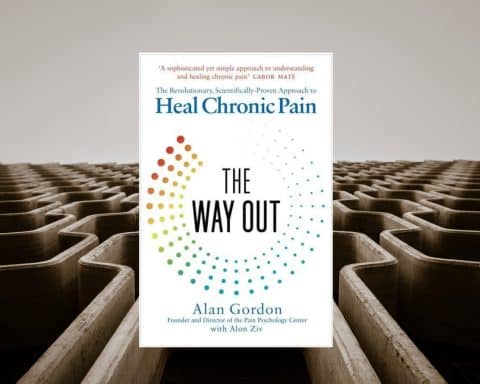
Carter Singh, MBE, is a partner in a GP practice, Chair of Nottinghamshire LMC, and a Council Member on the Governance & Nominations Committee, RCGP.
As per NICE/SIGN/RCGP guidance1 Long COVID is a commonly used term to describe:
- On-going symptomatic COVID-19: signs and symptoms of COVID-19 from 4-12 weeks.
- Post-COVID syndrome: signs and symptoms that develop during or after COVID-19 and continue for more than 12 weeks and are not explained by an alternative diagnosis.
There are a myriad of symptoms that have been linked to Long COVID and these can range from breathlessness, chronic fatigue, cognitive impairment (so called “brain fog”), anxiety and stress.
A study of over half a million adults in England found that one in 20 had persistent COVID-19 symptoms.2 The research looked at survey data from the Imperial College London-led REACT-2 study, collected from random samples of the population between September and February. Nearly 27,000 (around 6%) reported experiencing at least one of 29 symptoms linked with COVID-19 for 12 weeks or more.
A study of over half a million adults in England found that one in 20 had persistent COVID-19 symptoms
The government have pledged a total of £100 million into Long-COVID care. £50 million to support research into Long COVID and £20 million of this is via the NIHR for research into Long COVID.3 As a stand-alone sum, £50 million is unlikely to do more than merely scratch the surface of gaining a deeper understanding into the long-term effects of COVID-19 but it is definitely a step in the right direction. It is hard to know at this time if the government’s pledge is a party-political vote-winning strap-line or if it is part of a well-thought out coordinated strategy. Irrespective of whether this pledge of funding may be a trite platitude or a genuine attempt to trigger meaningful change; what is known is that the NHS is in dire need of additional funding to sustainably cope with the added pressures of COVID-19 as we approach winter.
The COVID-19 vaccination programme has been the biggest co-ordinated global vaccination programme in history and the pace at which the vaccines have been developed and rolled out is phenomenal. General practice needs to be commended for delivering the lion’s share of the vaccine programme at the same time as honouring it’s core contractual obligations. Despite delivering over 90% of NHS contacts for less than 8% of the funding, General practice has been resourceful and innovative and has gone the extra mile in supporting patients with COVID-19 related problems during the pandemic. Despite this, the profession’s efforts and good will seem to have been largely unfunded, unrecognised and undermined by the court of public opinion, regulators and the politicians.
£50 million is unlikely to do more than merely scratch the surface of gaining a deeper understanding into the long-term effects of COVID-19.
There seems to be a relentless anti-GP narrative in the media that ‘GPs in England may be failing to recognise thousands of cases of Long COVID’.4 This was the Guardian’s interpretation and contextualisation of the research from Oxford University that the clinical coding in primary care of Long COVID seems to reflect a significantly lower prevalence to that predicted in the REACT-2 research.5 However, this discrepancy is most probably explained by GPs being unaware of which clinical read codes to use to document and record the patients they diagnose/treat with Long COVID. From personal experience, on the shop-floor, there has been a paucity of clear communication about the consensus relating to the formal diagnostic read codes. So, technical artefact recording issues may be the root cause of this reported discrepancy as opposed to a true low prevalence of Long COVID in the population at large.
There seems to be a relentless anti-GP narrative in the media.
GPs are extremely experienced in apportioning financial resource into healthcare provision to meet the needs of their patient populations. What General Practice needs is additional resource and funding to free-up our teams to be able to have the flexibility and agility to care for our patients. System-wide additional funding into General Practice is needed into the core-contractual global sum to front-line GPs. GPs have their finger on the pulse of their patients’ needs. GPs need to be given the trust and autonomy to utilise the funding as they see fit to cater for the specific needs of their patient cohorts. What General Practice doesn’t need are reels of red tape, endless box-ticking and administrative hoop-jumping to secure small sums of funding in the form of ESs. Rather than providing sticking plasters for the grazes, General Practice requires life support to address it’s pre-terminal state which has been caused by the workforce/workload crisis and chronic underfunding.
Repeatedly, General Practice has demonstrated through it’s ingenuity, good will and resourcefulness that it can deliver more value for money for every penny of the taxpayer’s pound than any specialty other within the NHS. We do this because of our belief in the system and our commitment to the NHS and our patients. We do this because the buck generally stops with us. We do it because it’s ethically and morally, the right thing to do.
Unfortunately, however, we often do it at the expense of our family lives, work/life balance and mental health/wellbeing. The pandemic has exhausted the profession and made it clear that goodwill and civic-mindedness are not infinite or sustainable without the adequate recognition, trust and resources.
- RCGP. Management of the long term effects of COVID-19. The RCGP response and top tips for caring for our patients. V1 30th October 2020. https://elearning.rcgp.org.uk/course/view.php?id=492References
- Imperial College London. Whitaker M, Elliott J, Chadeau-Hyam M, et al. Persistent symptoms following SARS-CoV-2 infection in a random community sample of 508,707 people. Working paper. 24thJun-2021. http://hdl.handle.net/10044/1/89844
- National Institute for Health Research. NIHR launches second £20 million Long COVID funding call. 25th March 2021. https://www.nihr.ac.uk/news/nihr-launches-second-20-million-long-covid-funding-call/27331
4. Sample A. GPs recording low numbers of long Covid compared with survey estimates. The Guardian 2021; 30 Jun: https://www.theguardian.com/world/2021/jun/30/gps-in-england-failing-to-recognise-thousands-of-long-covid-cases
- Walker AJ, Mackenna B, Inglesby P, et al. Clinical coding of long COVID in English primary care: a federated analysis of 58 million patient records in situ using OpenSAFELY. Br J Gen Pract 2021; https://bjgp.org/content/early/2021/06/28/BJGP.2021.0301
Featured photo by Fin MacBrayne on Unsplash






